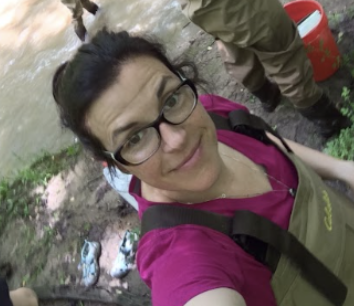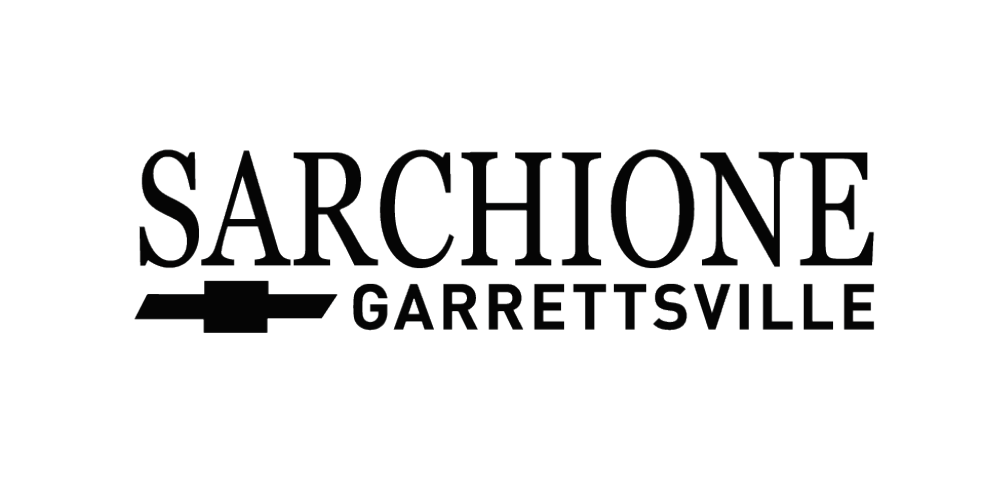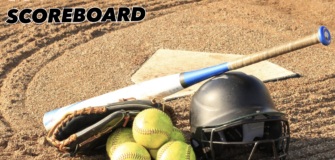LOADING
Sarchione Garrettsville’s Coaches in the Classroom: Aurora’s Laura Bell-Peters
Sarchione Garrettsville’s Coaches in the Classroom: Aurora’s Laura Bell-Peters
Share
By Tom Nader
Publisher and Editor
The “Coaches in the Classroom” feature is a weekly series that is designed to spotlight and celebrate coaches throughout Portage County, who spend their days in the classroom leading today’s student-athletes to be tomorrow’s leaders.
Today’s spotlight is on Aurora’s Laura Bell-Peters, who is in her 20th year teaching science at Aurora and is also the cross country and track and field coach for the Greenmen.
- School district?: Aurora City Schools.
- How long have you been employed there?: Since 2005.

Aurora High School science teacher and cross country head coach Laura Bell-Peters.
- Classes taught and/or position held?: Biology, Honors Biology, Environmental Science, Anatomy and Physiology, mentor teacher, SADD advisor, Environmental Science Club advisor, Running Club advisor at Leighton Elementary, track and field coach, cross country coach.
- What made you want to become an educator?: I did not originally go to school for education. I have a Bachelor’s degree in Biology and a minor in Criminal Justice Studies from Kent State University, a Master’s degree in Urban Education from Cleveland State University and a Master’s degree in Curriculum and Instruction and my Lead Teacher Endorsement from Kent State. I have had several amazing opportunities — from spending the summer at Ohio State Stone Labs that led to research of the grazing rate of ostracods, working as an intern at the Cuyahoga County Medical Examiner’s office assisting in cold-case grants, Summit County Medical Examiner’s office observing and assisting autopsies and death determination, Lake County Crime Lab (toxicology and DNA) and worked three years at a small biotech company in Cleveland before going back to school for education. During my undergraduate years, I had the opportunity to coach with my former high-school coach and worked part time at a martial arts studio teaching classes. While working in research, I felt like I was missing something. While I still loved many different aspects of science, I missed coaching and having a direct impact with other people. It was then that I decided to go back to school for education.

- What is the favorite part of your job?: When the students have the “ah-ha!” moment. When the student finds that new passion or is excited because they were not always strong in science, but have found a new appreciation for it. Or even years later when students come back and say they may not have always enjoyed it at the time, but are appreciative of how I pushed them to do or be better. When your athlete finally has that breakout race they have been working for, sometimes, three years to get there. I love that, in the last few years, I have had the opportunity to teach real world relevant electives that students choose to take versus have to take. My favorite unit is water quality and having the opportunity to get outside and have students connect to the environment and take and analyze water samples. Any ability to have hands-on experience and connect to their daily lives. In the summer, we have had the opportunity to take students to different programs at Hiram and the last few years, the LSI program partnered with Hiram and Case Western Reserve University. A few years ago, we took a group of students to the Galapagos Islands, which was one of my all-time experiences.
- What have you learned about being an educator that you didn’t know before you started?: How emotionally invested you become. When the students leave the classroom, you continue to worry or care about their future. Sometimes they call you mom and it is the best compliment, because they understand you care about them, but will also hold them accountable because you care and you know they are capable of so much more than they know.
- Which teachers influenced you to go into education?: Some of my most memorable educators are Mr. McCombs, Mrs. Sarver, and I can’t forget my Entomology professor Dr. Foote, who I traveled to Belize with to study insects. Dr. Foote actually tried to get me to add education as a double-major.
- How do you apply some of your coaching to the classroom — and how do you apply some of your classroom to your coaching?: I think it is just who I am and it goes hand in hand both in the classroom and on the field. I believe that all students have the ability to learn and be successful. However, how they get there might be different from their peers. I think this is why I love coaching cross country as well, because each athlete has the ability to grow and find success. Having high expectations. My students and athletes know I am invested in their progress and will be there to help and cheer them on, but they also have to put in the work and if they are not, we will talk about it. I believe that they are learning everyday and sometimes they teach me. I reward bonus points if they can teach me something new. If we learn one thing that day, it is a good day. If just one of my students learned something new that day, I had a purpose. (I hope a lot more than one). I often remind my students, athletes and my own children that perfect does not exist. It is OK to work towards it, but at some point, you will fail or have a not-so-great race and that is OK. Sometimes before a test, quiz or race, if I can tell a student or athlete is super nervous, I ask them what is the worst that can happen? They fail … OK. How we learn from those events is how we get better tomorrow. If they never experience failure, you may never reach your full potential. When athletes are disappointed after a race, I will never say they had a bad race. I ask them what they think went well, what didn’t go so well and what could we change. Maybe there was something that impacted the race they had no control over. Just always being reflective in what we are doing and what we can differently. I know I annoy them with my cheesy sayings, but I think they get it, too. I often will say, “You get to race today, you get to do this workout today or you get to be at school today and learn something new.” Because not everyone has the opportunity to do that today, but we get to. I believe in the daily forgiveness, and we all have rough days and tomorrow is a new day for a fresh start, and I do not judge them from the day before.
- Funniest thing that has ever happened to you in the classroom?: When I was student-teaching and my advisor was observing, the students were lining up at the door. One student leaned on the emergency shower and water went everywhere. Thankfully, it was the last class of the day. I think this is why, still today, I do not love it when students are lining up to run out the door.
- Mentors in your building who have helped you along the way?: I am very thankful for so many of our talented staff members and what each one brings to the district. You can always pop in and ask questions or seek suggestions on how to do something. Everyone is always willing to help out. It would be too hard to just mention a few. I have been very fortunate to have very supportive administrators, who also provide great support, feedback and suggestions to try something new — even if it does not work out the way we wanted it to. The freedom to try new things is refreshing. Mr. Roberto has been an inspirational person to work with as a colleague, as both the assistant and principal and now the Superintendent. His philosophy about nurturing the roots is genuine for both the students and the staff. Mr. Roerto genuinely cares about his staff and students as individuals. He is a wealth of knowledge. I love that I can always pick his brain about science lessons or when he needs to drop in to get a science fix.





